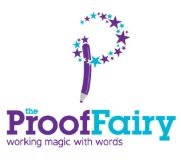You’ve already seen the question right on the homepage of this very site: What’s your story? It’s something authors of all kinds must ask themselves, whether they’re working on fiction or nonfiction, in short stories or in full-length novels. But sometimes – even for those who have excellent material buried in their minds, or deft skills when it comes to the actual writing – the question can be a little bit difficult to answer.
The bottom line in a lot of cases, though, is that an author’s story tends to come from an experience – even if it doesn’t necessarily seem like a particularly dramatic one at the time. For instance, in the category of nonfiction, celebrated author Michael Lewis got started in his professional life working in financial services at Saloman Brothers; he went on to write The Big Short: Inside The Doomsday Machine, a riveting account of big bank and housing market corruption that would be turned into a popular film. In fiction, recent up-and-comer Karen Russell burst onto the scene with Swamplandia!, a novel concerning a bizarre Everglades world of creepy characters, gators, and strange legends; she’s described the theme parks of her childhood in South Florida as inspiration.
These are just two examples, but they cover entirely different styles and subjects of writing, and illustrate the importance of finding your story. And since sometimes that starts with finding something different to do, I wanted to make a few suggestions that might get any aspiring writer thinking!
1.) Start Travelling
Travelling can almost seem too easy, given that it is by definition supposed to expose you to new experiences. But there’s nothing wrong with easy! Seeing places beyond your own home or comfort zone can not just give you literal subjects to write about, but can expand your worldview and change the way you see yourself as well. This can result, more than anything else, in enriching your voice as a writer, as has been demonstrated throughout history. Many if not most renowned writers had some experience with destinations, whether that means time spent a world away from home, or simply a more in-depth exploration of neighbouring towns or a surrounding countryside. Putting it bluntly, even if it’s something of a cliché, to write about the world, you first must get to know it!
2.) Volunteer
In some cases, the benefits of volunteerism can be much like those of travelling: you can broaden your perspective and often get to know a new place. However, volunteering can mean many things, and ultimately this idea is more about meeting people. Most of us have a tendency to burrow into social circles of our own making, and surround ourselves with people somewhat similar to ourselves. Through volunteerism of most any sort though, you’ll meet new people with complex lives and stories of their own. The same could be said of many other activities as well, but there’s just something about a volunteer setting that causes people to be more genuine, which in turn can lead to a richer foundation for writing ideas.
3.) Try Casinos
Casinos may not have a massive place in literature, but there’s a reason they produce an interesting film just about every year or two: there’s inherent drama. The wins, losses, and social interactions comprise a world in which anything seems possible, and while you can get a taste of this from the outside looking in, you can’t fully understand it (or glean a story from it) without diving in. Today, that might mostly mean browsing the newest casino sites, typically based in the UK, and most of which now have a dizzying variety of games. This isn’t a bad idea. You can control what you spend very easily (I’m certainly not suggesting you should pour money into this hobby), and online casinos haven’t been tapped as frequently for story content. However, there’s also something to be said for trying the real thing, and getting to know life inside actual casinos. You never really know what sort of story you may stumble upon.
4.) Go Back To School
You might find advice out there to take an odd job if you’re in search of story inspiration, and it’s worth considering. Just think about the Michael Lewis example mentioned above! But another version of this same idea is to go back to school – to find a further education programme of some kind that appeals to you and seems likely to expose you to interesting people and situations. The very process of learning can spark ideas for stories, as can the atmosphere of almost any learning environment. You might come across a subject you feel inspired to explore further, meet a person or group of people you can turn into characters, or even gain some insight for a nonfiction account about adult learning in general – or something even bigger, like the state of young professional career pursuits.
5.) Take Up Cooking
As with casinos, this is a fairly specific sort of hobby that can end up exposing you to a fascinating world ripe with story material, fictional and otherwise. Think of books like Eat, Pray, Love, that are grounded at least in part in a desire to explore world cuisines; recall the film Julie & Julia, a drama about an ordinary woman working through a Julia Child cookbook. Recently, a new series even debuted on Netflix, showcasing film director Jon Favreau and his chef friend Roy Choi (as well as assorted celebrity guests) as they travel, cook, and learn about food. There’s really a whole sort of sub-culture of cooking- and food-related content in all forms, which should give you some idea of the scope of ideas you could land on if you really dive into cooking.





